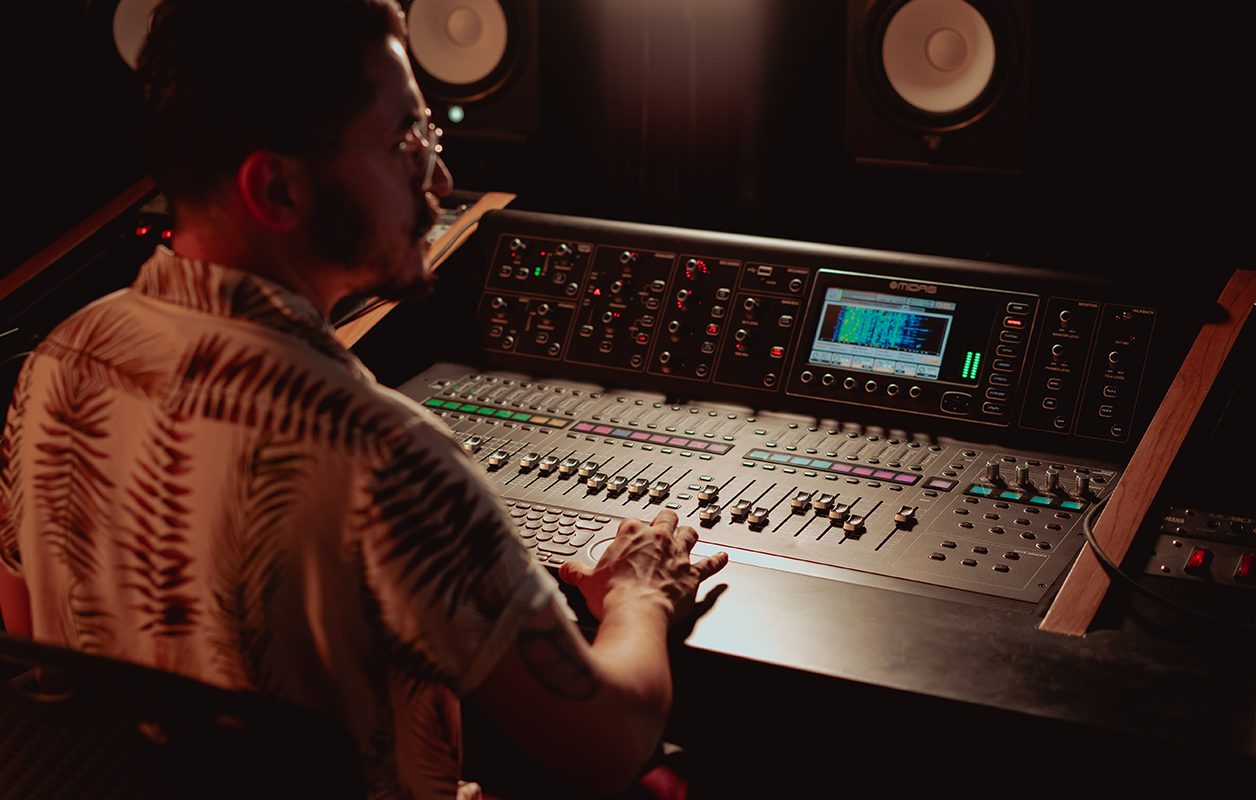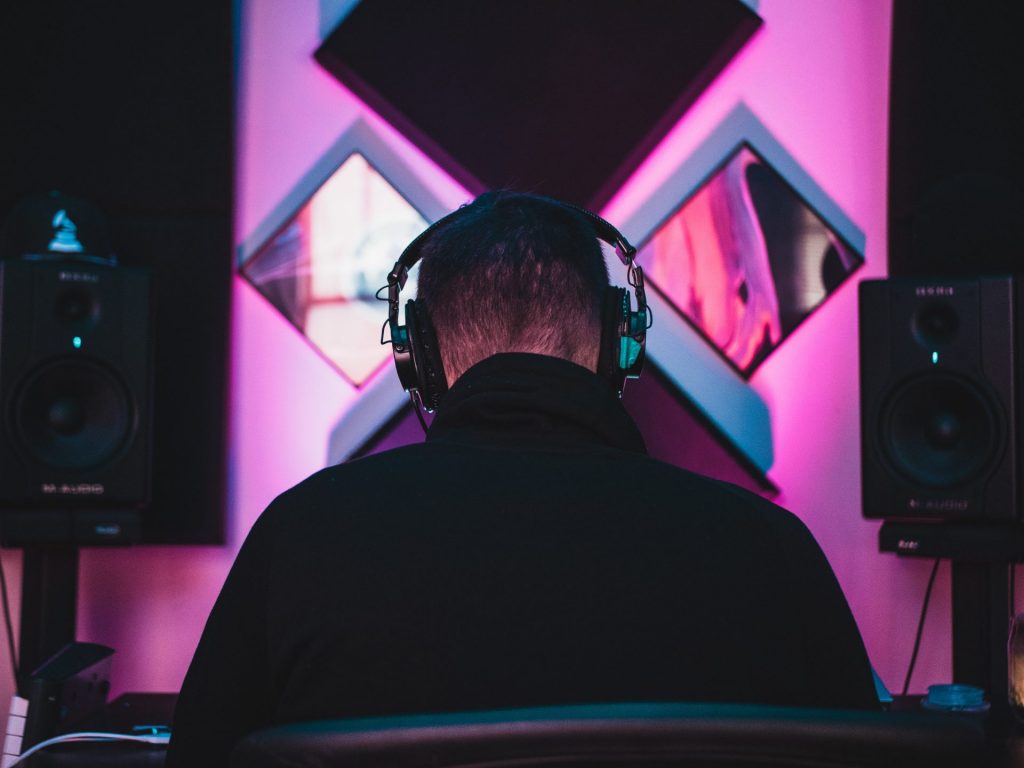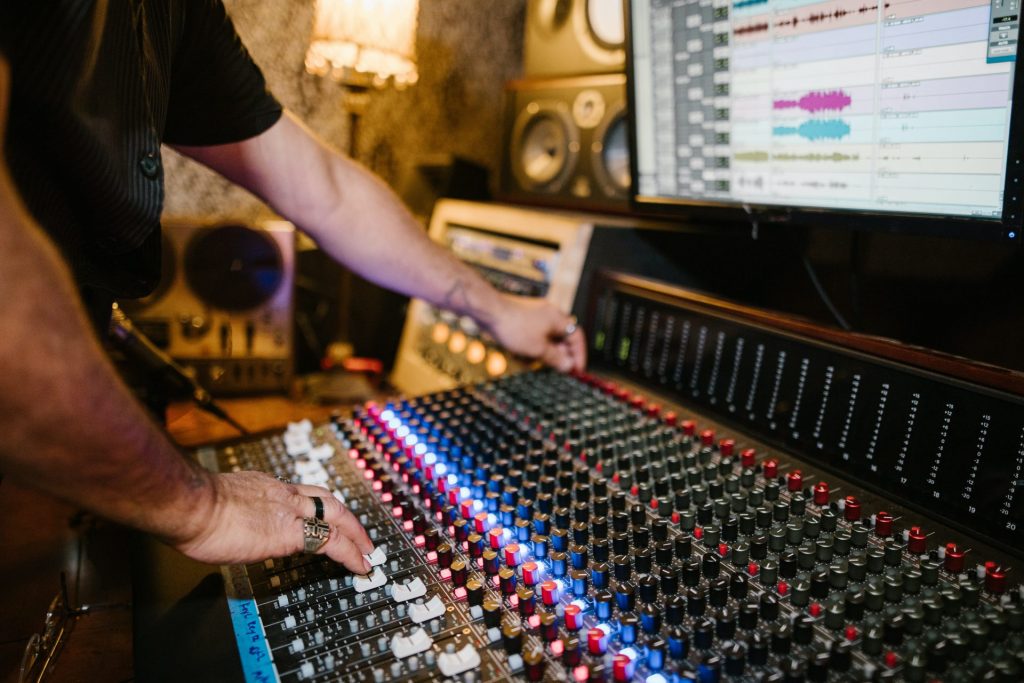
Finding your place in the music industry can be a process. There is a ton of lingo to parse through and understanding the individual role of a music producer can be confusing. The good news is that you’re not alone!
As it turns out, music producers are responsible for multiple dynamic tasks and responsibilities as discussed below. In this guide, we’ll outline the basic components of the recording process and unpack the roles of a music producer.

How Are Professional Songs Recorded?
To understand what music producers do, it’s important to have a basic understanding of the process involved in professionally recording music. Here are the five steps that come with taking a song from an idea to radio-ready.
- Songwriting: Basic chords and lyrics are written out by a songwriter or artist. Sometimes the music producer is a part of this process, but most of the time, they jump in on the next stage.
- Recording: Vocals and live instrumentation are recorded into a DAW. Producers get multiple takes of each element to create the strongest song possible.
- Producing: Music producers build beats, arrange the recordings, and compose additional electronic instrumentation if applicable.
- Mixing: The finished beat is handed off to a mixing engineer who balances the ratios of elements within a track to create a cohesive song.
- Mastering: The final mix is compressed to create an amplitude that’s ideal for streaming or other desired output.
Note that music producers often have their hand in multiple processes, not just the “producing” step alone.
What Do Music Producers Do?
The term “producer” can be confusing since it’s not analogous to “producer” roles across other industries like film. It’s also worth noting that the advent of electronic music and the evolution of digital beat making has expanded the role of music production as a whole.
Music producers take on a variety of tasks depending on the needs of a particular project. Here are the main responsibilities of music producers:
Recording
A music producer’s primary duty before the age of electronic music was largely to create an ideal recording environment based on an artist’s direction. This is included but not limited to setting up microphones, managing room acoustics, and creating optimized signal chains with hardware or electronic preamps, compressors, etc.
Music producers help capture sound and are often able to play several instruments themselves. It’s not uncommon for producers to contribute instrumentation to a track, though this isn’t always needed.
Beat Making
Arguably the largest role of the music producer is to craft the beat and instrumentation behind a singer or songwriter’s lyrics. Producers spend most of their time in a digital audio workstation, or DAW, to capture recordings, and arrange them and instrumentation as needed.
Producers build beats with samples and MIDI tracks using virtual instruments to create the polished sound we all crave. Music producers take on composition as well, helping an artist arrange various musical elements within a DAW to build cohesive songs.
Guiding Sessions
Music producers are also mentors and coaches that guide the needs of the session. If there are certain words that need to be re-recorded to get a new take, the producer communicates this. If the singer is having trouble finding their footing while performing, the producer can help advise, enlist confidence, and keep the session focused.

How Do You Become A Music Producer?
Like most jobs within the music industry, there isn’t a clean cut path to becoming a full-time music producer. In most instances, music producers need to continue putting out great music and networking with other artists and collaborators to build their way to a professional career.
But don’t get it twisted – if you produce music in a DAW like Logic, Ableton Live, Pro Tools, or FL studio, you are a music producer! Producing music like the pros only takes a couple pieces of essential gear these days– the real work comes from taking the time to make the music.
Hopefully, this guide has given you a stronger understanding of music producers overall. While every session is different, music producers often complete the same aforementioned tasks relevant to the songs at hand.

